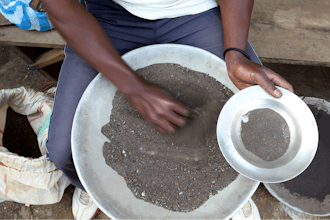NEW ORLEANS (AP) — With a trial over the Gulf of Mexico oil spill looming, BP PLC is asking a federal judge to block two plaintiffs' experts from testifying about an alleged disregard for safety throughout the energy company that those experts say led to the nation's largest offshore oil spill.
BP's legal maneuver to limit the two California experts from testifying about the alleged lack of a safety culture at BP was made public Monday after U.S. Magistrate Sally Shushan unsealed 30 court motions to limit and block expert testimony. BP filed 17 of the motions, seeking to block expert testimony on a number of issues behind what happened to cause BP's well to blow out.
The trial begins Feb. 27 in federal court in New Orleans. It will determine the division of responsibility for the disaster that began with the explosion of the BP-leased Deepwater Horizon on April 20, 2010, which killed 11 men about 50 miles southeast of the Louisiana coast.
Besides BP, other companies involved in the spill — including Cameron International, Halliburton Corp. and Anadarko Petroleum Co. — and the Justice Department filed their own motions to block experts from testifying at trial. The sparring parties are seeking to block testimony about a slew of issues involving how the well was cemented, how drilling fluids were poured into it and how pressure tests were interpreted. The trial is expected to rely heavily on expert testimony.
But BP's attempt to block Robert Bea, a University of California-Berkeley engineer, and William Gale, a California-based fire and explosion investigator and consultant, from testifying is pivotal for the plaintiffs' case, which charges that BP was reckless in its actions. The plaintiffs and federal and state governments are seeking to get U.S. District Judge Carl Barbier to find BP grossly negligent, a finding that could result in billions of dollars in fines.
In pretrial depositions and in an expert report, Bea and Gale argued that BP showed a disregard for safety throughout the company.
Their testimony — if it is allowed at trial — would be expected to paint BP as a cavalier company that has failed to learn lessons from previous disasters — including the 2005 explosion at a BP refinery in Texas City, Texas, that killed 15 workers and injured 170 others and a major spill in 2006 from a BP pipeline in Prudhoe Bay, Alaska.
In its filing, BP charged that Bea and Gale's report was "the opposite of good science." BP charged the twoexperts with focusing solely on BP and analyzing documents and evidence "spoon-fed to them" by plaintiffs lawyers. BP accused the experts of ignoring the "safety culture of the other parties" involved in the spill, in particular Transocean Ltd., the drilling company running operations aboard the Deepwater Horizon.
BP said Bea and Gale failed to take into consideration a report by Lloyd's Register that was done one month before the explosion. Lloyd's report found serious fatigue problems with Transocean's decision to lengthen workers' hitches aboard the Deepwater Horizon by one week, from 14 days to 21 days. Lloyd's specializes in assessing safety aboard maritime facilities.
The plaintiffs' lawyers declined to comment on BP's filing. Gale did not return a telephone call seeking comment. Bea said he was unable to comment due to a confidentiality agreement with plaintiffs' lawyers.
Attempts to exclude experts from testifying at trial are standard.
But Ed Sherman, a Tulane University law professor, said he would be surprised if Barbier excluded expertsbecause this will be a non-jury trial.
"My guess is that most of them will qualify," Sherman said.
He said Barbier will want to hear what the experts have to say and that he will discern unreliable experttestimony.






















